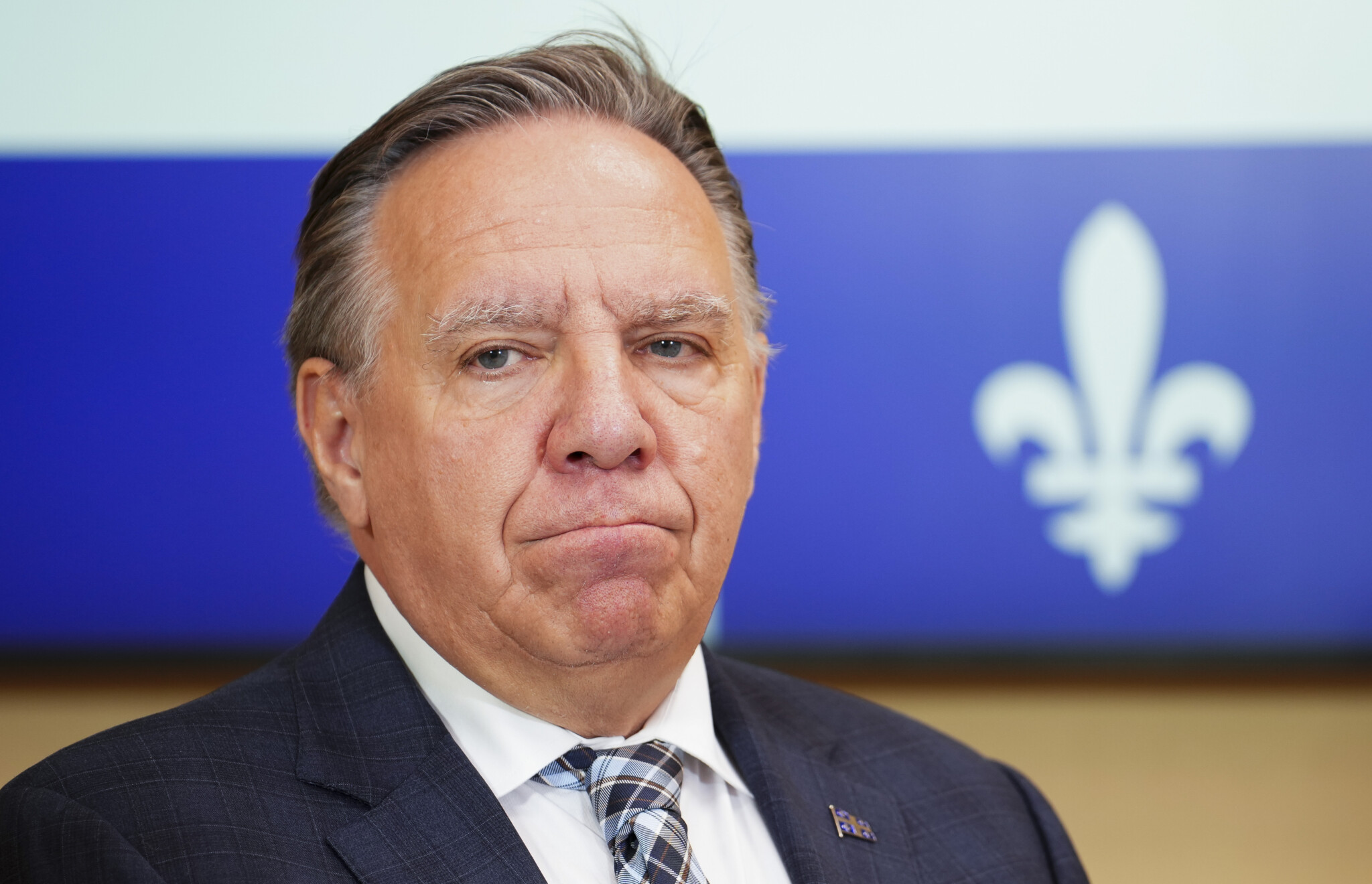As of October 30, according to the government of Quebec, doctors in the province may euthanize someone who has lost mental capacity to consent, provided that person signed an advance request for MAID before losing capacity. But there’s one big legal problem here. As Canada’s attorney general and health minister put in a recent joint statement, “providing MAID pursuant to an advance request remains an offence under the Criminal Code.”
Murder, that is, though the government’s press release doesn’t mention it. Under the Criminal Code, homicide is simply causing a person’s death, and doing so is murder, even with the consent of the person killed. Unless, that is, it falls within the exemption for MAID, which presently does not cover euthanizing someone based on an advance request of the sort contemplated by Quebec’s law.
Here’s how we got here. In June 2023, Quebec amended its Act Respecting End-of-Life Care to allow euthanasia by advance request. But for over a year, that amendment never came into effect, because it purported to authorise something that Canada’s Criminal Code prohibits. Quebec urged the federal government to change that law, grew impatient, and eventually took another approach: ignoring the Criminal Code.
Over a year after amending its law to permit advance requests, Quebec’s government announced it will go ahead and euthanize patients who have made advance requests. It will do so by (a) declaring its 2023 law into force and effect regardless of any conflict with federal law, and (b) directing Quebec prosecutors not to enforce criminal law, provided provincial law is followed. (The Criminal Code is federal law, but it makes provincial prosecutors exclusively responsible for enforcing all but a few offences.)
The same day that Quebec’s justice minister and attorney general announced he was “requesting” that prosecutors not prosecute euthanasia based on advance requests, Quebec’s director of criminal and penal prosecutions (DCPP), Patrick Michel, announced his agreement, explaining that “it would not be in the public interest” to prosecute any cases where a MAID death occurred in line with Quebec law.
As Michel further explained to the Canadian Press, when asked whether the province was ignoring criminal law, “We’re a law enforcement agency, so we have to take it for granted that the provincial law is valid.” That’s quite a dodge. Michel is right that Quebec’s law is presumed valid until a court finds otherwise. But the federal law is, too.
What Michel (the man responsible for directing criminal prosecutions) is really doing is presuming that the criminal law is invalid—that it is somehow negated or overridden by Quebec law. If Michel presumed that both laws are valid, as he should, then he would enforce the criminal law, which is his job. A basic rule of federalism is that just because a provincial or federal law is stricter than its counterpart does not mean the laws are necessarily in conflict. Quebecers can obey the criminal law—by not doing MAID based on advance requests—without violating provincial law, since Quebec permits but does not mandate MAID where a patient has made an advanced request.
If it were otherwise, a province could in effect legalise a criminal practice by enacting a law that regulates that practice. Imagine, for example, Quebec or another province enacted a licensing and regulation regime for brothels. Arguably such a law would be invalid for purporting to permit what criminal law forbids. But it could also just be seen as a pointless law since nobody can legally open a brothel even with a provincial licence if the criminal prohibition is still in effect.
But if Quebec can get away with what Michel says he will do here, then even passing such a law would be unnecessary. All a province would have to do to effectively legalise a criminal act in the province would be to make it official provincial policy to never prosecute said act.
Saskatchewan, let’s say, could legalise federally banned firearms by directing prosecutors not to prosecute any cases. In theory, anyway, although the province would never get away with it. Not with the current federal government, anyway. Nor should it. In response, the federal government could challenge the legality of the provincial government’s direction to prosecutors to not enforce federal law. Parliament could also amend the Criminal Code to allow federal prosecutors to prosecute restricted firearms offences.
One might wonder whether British Columbia did something like what Quebec is doing here with respect to drugs. But from B.C.’s first safe injection site in 2003 to today’s broader “safe supply” experiment, its policies have been explicitly permitted by federally granted exemptions from federal laws. And when the Harper government refused an exemption for a Vancouver supervised injection site in 2008, the Supreme Court ultimately ordered the federal government to grant an exemption, which the relevant statute gave the government the authority to do (or not).
Notably, in that case (PHS v. Canada, 2011), the attorney general of Quebec intervened to argue that federal prohibitions on drug possession are invalid insofar as they apply to provincial health-care facilities or providers. The Supreme Court notes that “Quebec acknowledges that its approach might appear novel,” just before dismissing Quebec’s argument in two short paragraphs.
Undeterred, Quebec tried to advance a similar argument again in Carter (2015)—the challenge to Canada’s complete ban on euthanasia. But the Court rejected outright Quebec’s argument that federal law must permit a province to “establish the kind of health care offered to patients and supervise the process of consent required for that care.” The euthanasia ban was a valid exercise of the criminal law power, the Court ruled, even if it restricts what a province may do in terms of health care. It was only because the complete ban infringed the Charter that the Court struck it down.
Quebec’s decision to bring its law into effect and refuse to enforce the criminal law that prohibits MAID by advance request is a bold assertion that Quebec may do whatever it wants under the guise of health care and determine the “process of consent” for receiving such “care” regardless of what Parliament says.
Of course, Quebec’s decision has been and will continue to be defended by reference to prosecutorial discretion. Important though it is, this discretion has limits. Generally speaking, it refers to prosecutors’ discretion to decide whether to prosecute a particular charge, or to stay proceedings that have already begun, based on the likelihood of conviction, the seriousness of the offence, the expected impact of the prosecution on the accused and the community, and various other factors. It is also appropriate for Quebec’s DCPP to offer general guidance to prosecutors on how to exercise discretion in individual cases.
But to decide that prosecuting provision X of the Criminal Code is never in the public interest and therefore will not be done is, in effect, no different from repealing the law on X. But a provincial attorney general or prosecution service has no authority to do so. University of Montreal professor Frédéric Bérard asserted plainly, “The directive [from Quebec’s Justice Minister] is unconstitutional.” Delivering MAID by advance requests is an explicit policy priority of Legault’s government, but prosecutors are independent.
“As long as the Criminal Code is not amended, Quebec has no right in law to do this,” Bérard says. But, he recognizes, Quebec will likely get away with it, because “The Trudeau government is scared of a fight over a principle.” No doubt, but I think it’s also possible that the Trudeau government supports Quebec’s law in principle (if not Quebec’s going rogue by ignoring criminal law). His government has seemed remarkably eager to liberalise Canada’s MAID laws.
And to be fair, I haven’t seen any response to Quebec’s unprincipled move from the Conservatives, either, though they are the major federal party most opposed to MAID in principle. Continued Conservative silence on this matter would be shortsighted. They may have the most to lose, in terms of achieving policy goals, from provincial prosecutors declining to enforce contested criminal laws.
Quebec’s move has received quite a bit of news coverage, but this coverage tends to ignore the issue of how the federal government will or should respond. Trudeau’s government has no intention of challenging Quebec’s move. Rather, his government has announced that it will convene a “national conversation” on advanced directives, to be completed by early 2025. But it might be possible for a private organisation or coalition to obtain standing to challenge Quebec’s move, which could involve a challenge to Quebec’s Bill 11 or the government’s direction to prosecutors, or both.
As the late Justice Marc Rosenberg of the Ontario Court of Appeal explained, “Despite the Attorney General’s special constitutional status, there is no doubt that decisions by the Attorney General in the exercise of the prosecution function are similarly subject to judicial review.” There may be accountability for Quebec’s attorney general and DCPP yet. There should be.










